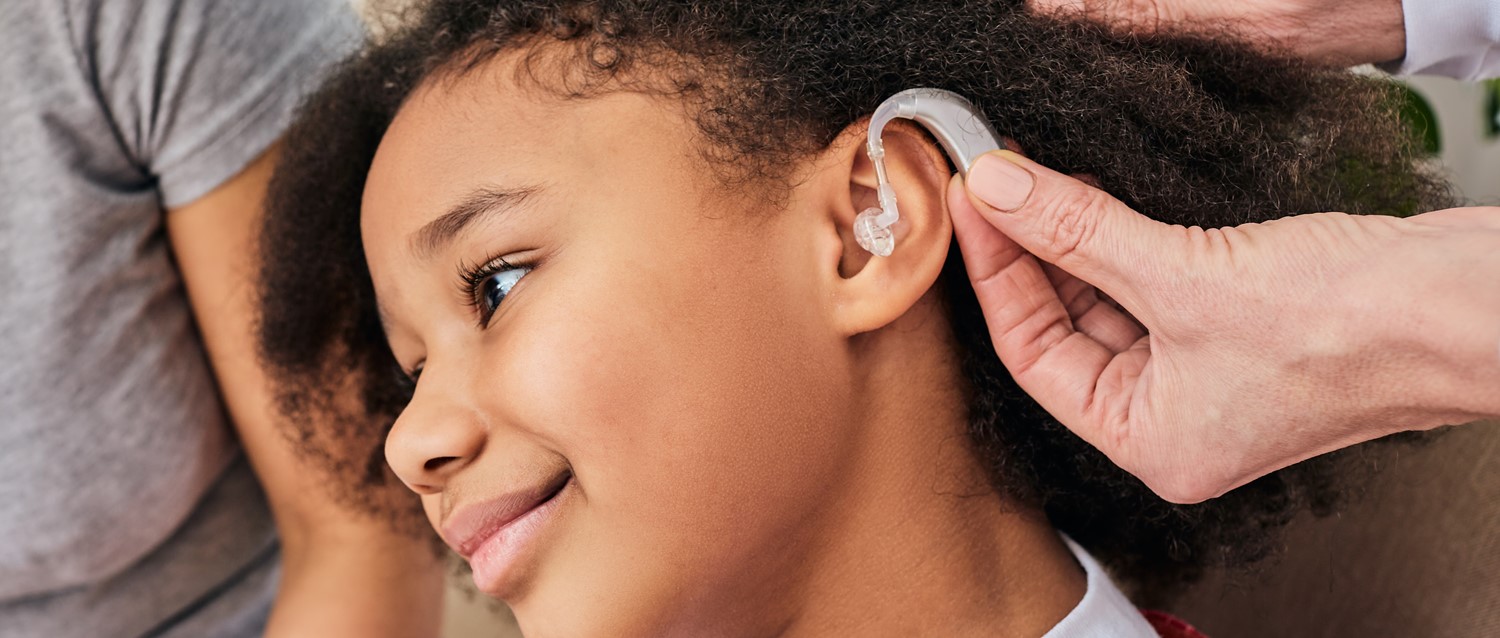
Why a GCSE in British Sign Language could prove a game-changer
Peer reviewed by Dr Krishna Vakharia, MRCGPAuthored by Gillian HarveyOriginally published 8 Sept 2022
Meets Patient’s editorial guidelines
- DownloadDownload
- Share
- Language
- Discussion
Imagine being fluent in a language that very few people understand. Now, imagine that language is one of the native languages of your country of birth. Only a small percentage of Britons currently use British Sign Language (BSL), so why would a GCSE qualification be so important?
In this article:
Video picks for Hearing problems
Around 900,000 adults in the UK are severely or profoundly deaf, yet according to the RNID only 151,000 people in the UK use British Sign Language, of whom 87,000 are Deaf.
Is British Sign Language a GCSE?
No, British Sign Language is not currently a GCSE. For years, charities and organisations supporting those with hearing loss have been campaigning to introduce a GCSE in British Sign Language (BSL), pushing for the language to be recognised as a 'core subject' rather than an additional language in terms of its status as a qualification.
It is hoped that this will mean that deaf children will be able to gain a qualification in their 'first language' and that BSL will become more widely taught. Making the language more 'mainstream' in this way, should both raise its profile and increase the number of 'speakers' in all communities.
Ensuring equality of opportunity
Back to contentsIn fact, failing to offer a BSL GCSE could be seen as disadvantaging deaf children, according to Simon Want, Policy Advisor at the National Deaf Children's Society.
"BSL is the first or preferred language of many deaf children in the UK and we know that around 1 in 10 deaf children and young people use sign language in their education. A BSL GCSE will give these deaf children the opportunity to achieve a GCSE in their own, legally recognised language. Failing to have the option to study for a BSL GCSE implies it has a lower status than other languages such as Welsh or French," he says.
According to figures released by the National Deaf Children's Society, only 35.1% of deaf children achieved a grade 5 (equivalent to a former high C/low B) in both English and Maths, compared with 55.8% of hearing children.
Having BSL classed as a core subject for pupils would provide deaf children with the opportunity to demonstrate their competence in their first language and may help to rectify this discrepancy.
Continue reading below
Benefits of a British Sign Language GCSE
Back to contentsHaving BSL available as a GCSE could have much wider benefits.
"We know that many hearing children are interested in learning BSL. Doing so will give them the opportunity to learn a new language and communicate more effectively with their deaf peers.
"And with more young people aware of BSL, we really hope it could lead to more people choosing interpreting for deaf people as a career. We know there is a shortage of sign language interpreters and a BSL GCSE could really help to start to plug that gap," says Want.
Greater understanding for deaf children
Back to contentsIntroducing the GCSE will be an enormous step forward in supporting and ensuring equality for deaf children, but there is more that needs to be done.
"Every deaf child is an individual and the support they receive must work for them. It's vital that deaf children get the right support as early as possible to develop the language and communication skills that are critical to their future. This support includes expert advice from Teachers of the Deaf to families and teachers, and better deaf awareness in schools," says Want.
"We'd also like to see wider recognition and understanding of the barriers deaf children and young people face every day. A BSL GCSE would be a big step in the right direction and would be a vital move towards genuine equality for deaf people," he adds.
Continue reading below
What will be assessed in a BSL GCSE?
Back to contentsWhile the qualification is yet to be written, it is likely that the GCSE in BSL would be assessed in a number of ways.
"A GCSE in BSL should not be the equivalent of learning a modern foreign language (MFL) but should be in a separate category of its own as a recognised language of English/Scotland and Wales," says Lindsay Foster, executive director of Signature.
"I would expect the assessment to cover productive skills, receptive skills, and conversational skills in the language but it's important also to include knowledge of the cultural history," she adds.
How close are we to a BSL GCSE?
Back to contentsThe Government pledged to introduce a BSL GCSE in 2018 and it is hoped that exam boards can soon start writing the content of the qualification, which would be available to schools in around 2024.
"We're currently waiting for the results of public consultations," says Foster.
"We're hoping that all results will be back within six months and from that point it will be up to awarding bodies to write a GCSE."
What barriers might BSL face?
Back to contentsIntroducing a new GCSE and having that GCSE widely offered in schools are two different things, and it is likely that the rollout of this new qualification will face some barriers to overcome.
"In terms of barriers, it's important that teachers are appropriately trained to deliver a BSL GCSE and so funding will need to be made available for this. We support the premise that BSL should be taught predominantly by deaf teachers or teachers with a real-life experience of deafness. They are likely to understand the cultural and inclusivity issues and are well placed to educate students and support them with this element of their learning," says Want.
"I think there will be an organic growth of delivery of the GCSE in schools. There will be schools that embrace from day one and schools that take time to come around to a different type of qualification and assessment. My expectation will be the growth will be at a manageable pace and there will be a natural increase in demand for teachers which will naturally expand over time," says Foster.
A step in the right direction
Back to contentsWhile a GCSE in BSL is by no means the only support required for the deaf community, its introduction would be a big step forward in breaking down barriers and increasing understanding.
"A new GCSE will also raise the profile of BSL and deafness and promote a greater understanding of the barriers deaf children face in schools," says Want. "Breaking down these barriers is absolutely key to making sure deaf children and young people don't get left behind."
In the UK there are 12 million adults with hearing loss greater than 25 dB HL. This is equivalent to 1 in 5 adults.
It is estimated that there are 151,000 people in the UK who use British Sign Language and, of these, 87,000 are Deaf. In the UK, more than 40% of people over 50 years old have hearing loss, rising to more than 70% of people over the age of 70.
Patient picks for Hearing problems

Ear, nose and throat
What is it like to be Deaf?
For those without hearing loss, it's hard to imagine what living with the condition would be like. We look at some misconceptions and explore how the Deaf community could be better supported.
by Gillian Harvey

Ear, nose and throat
How I found my Deaf identity - Rachel's story
Rachel Zemach wants you to know that she's proudly, culturally Deaf with a capital 'D' - and that your children can be too. Despite losing her hearing aged 10, decades would pass before she felt able to express this with confidence. In writing, we speak with Rachel about her journey from deaf to culturally Deaf, and how teaching Deaf children changed her life forever.
by Victoria Raw
Continue reading below
Article history
The information on this page is peer reviewed by qualified clinicians.
8 Sept 2022 | Originally published
Authored by:
Gillian HarveyPeer reviewed by
Dr Krishna Vakharia, MRCGP

Ask, share, connect.
Browse discussions, ask questions, and share experiences across hundreds of health topics.

Feeling unwell?
Assess your symptoms online for free
Sign up to the Patient newsletter
Your weekly dose of clear, trustworthy health advice - written to help you feel informed, confident and in control.
By subscribing you accept our Privacy Policy. You can unsubscribe at any time. We never sell your data.